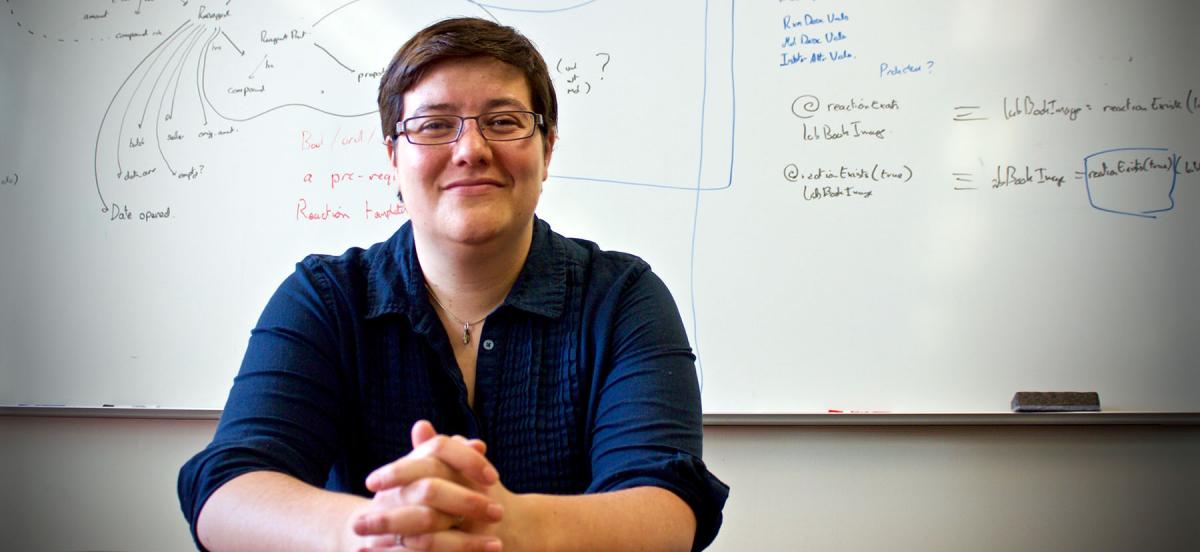Sorelle Friedler Awarded NSF Grant

Photo by Victoria Merino '20
Details
The assistant professor of computer science was awarded $172,742 as part of a larger collaborative grant to further work on algorithmic fairness and bias.
Haverford Assistant Professor of Computer Science Sorelle Friedler studies bias in computer algorithms, driven by a desire to make sure that these algorithms—which are increasingly used to make important decisions about hiring, loans, sentencing, and other crucial life events—aren't discriminatory.
That work will now be aided by a grant from the National Science Foundation (NSF). This award will support Friedler's foundational research on "fair decision-making," specifically in the context of the criminal justice system, which uses machine-learning algorithms to make sentencing recommendations based on recidivism prediction and predictive policing.
"Do these algorithms cause feedback loops by, for example, directing the police back to the same neighborhoods where they observe more crime because they are present in larger numbers?" asks Friedler. " If so, what can be done about this and how long would it take for a fix to be effective?"
This research will also examine how to define fairness in a mathematical way that also reveals the associated societal meaning and makes any societal assumptions apparent, and answer questions about a person's ability to uncover algorithm fairness without access to the details of a potentially proprietary algorithm.
Friedler is undertaking this work as part of a team that includes researchers at the University of Utah and the Data & Society Research Institute. The collaborative project's total budget is $953,432, of which the Haverford portion is $172,742. In addition to supporting Friedler's time and research, that money will fund Haverford undergraduate summer research students and allow those students to travel with Friedler to related conferences.
Friedler's work on algorithmic fairness has already been the basis of several Haverford senior theses—specifically those of Casey Falk '16, Brandon Smith '16, Gabe Rybeck '16, and Michael Feldman '15—and will continue to be an area for thesis exploration as the research evolves. (Feldman's work was was published as part of a paper presented at the 2015 Association for Computer Machinery's Special Interest Group on Knowledge Discovery and Data Mining Conference, and the work of the three Class of 2016 graduates will be published as part of a paper presented at the 2016 Institute of Electrical and Electronic Engineers Conference on Data Mining.) Two other students, Tionney Nix '17 and Tosin Alliyu '18, conducted related research over the past year that may eventually become their respective capstone projects.
"It's wonderful to see this growing subfield of machine learning recognized by the NSF through this grant," says Friedler. "I think that support is important validation for our students interested in this type of ethically focused, societally engaged computer science research, and nicely demonstrates the strength of liberal arts colleges in supporting it."
-Rebecca Raber



